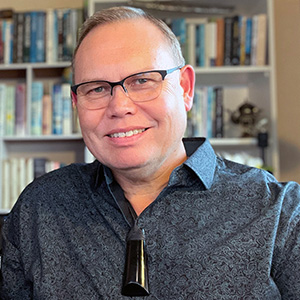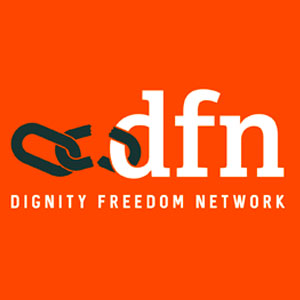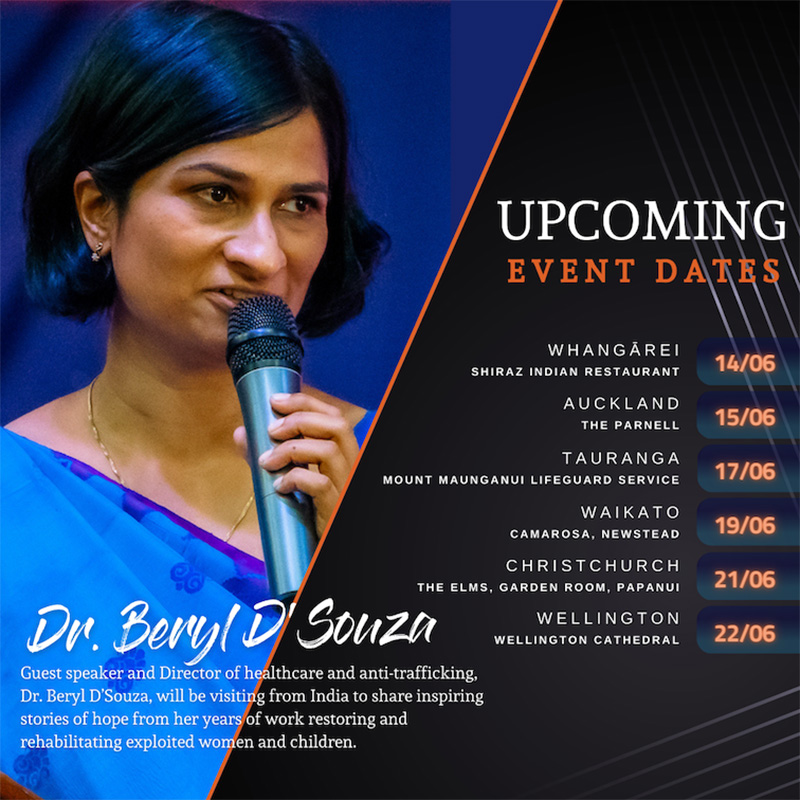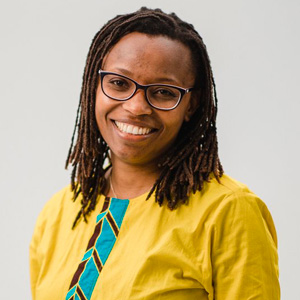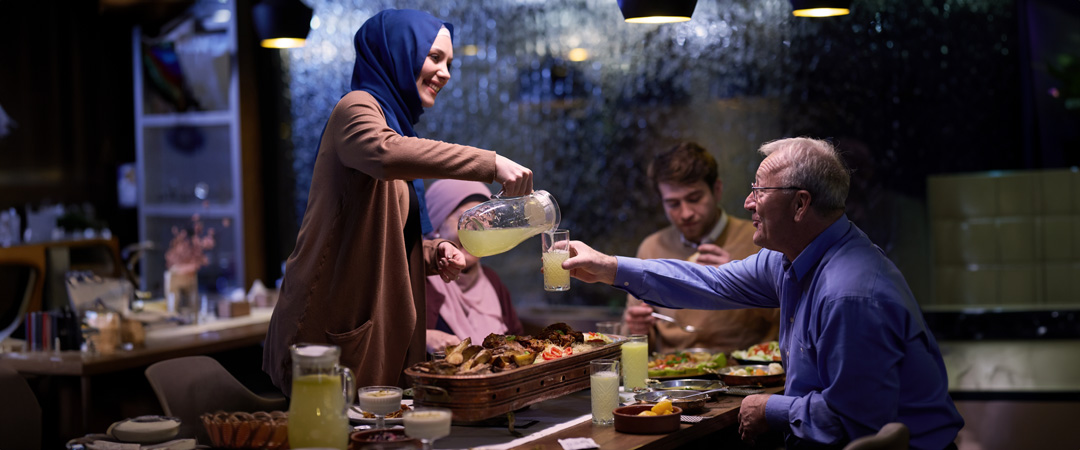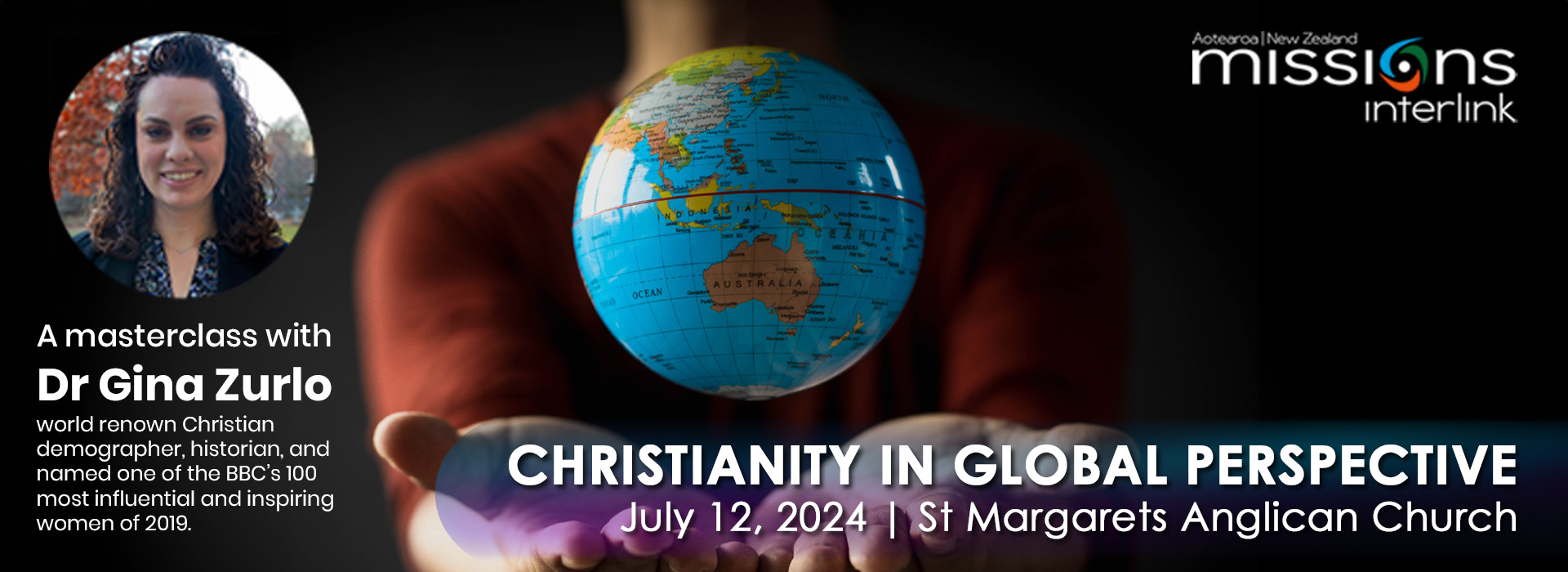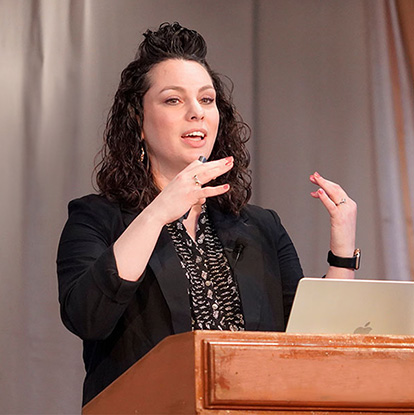
QUICK MENU
EDITORIAL
- Co-Creating Safety
EQUIP
- Cultural Humility
GO
- Staying is the New Going
- Interfaith Apologetics
- Reaching Religious Neighbours
CARE
- Rest & Renewal
PRAY
- AIM, FEBC, MINZ, OMF, WEC.
SPOTS
- Christianity in Global Perspective (with Gina Zurlo).
- Latest News. Events & Opportunities
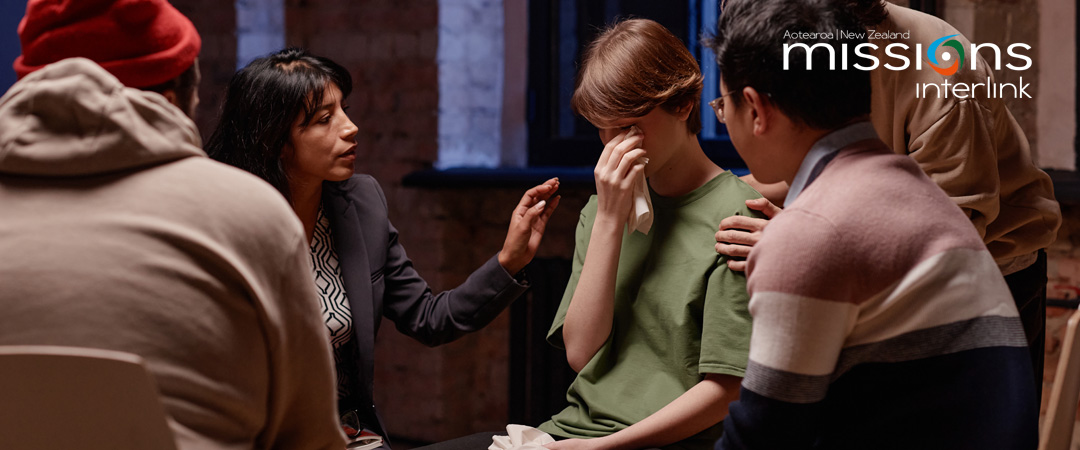
EDITORIAL
Co-Creating Safety
By Dr Jay Matenga
Jay is the Executive Officer of Missions Interlink and Executive Director of the World Evangelical Alliance’s Mission Commission. Jay writes and speaks on missions related subjects globally. His blogs, articles, and other public contributions are made available for free on jaymatenga.com
The text for this month is Psalm 34:4-7 (NLT), “I prayed to the LORD, and he answered me. He freed me from all my fears. Those who look to him for help will be radiant with joy; no shadow of shame will darken their faces. In my desperation I prayed, and the LORD listened; he saved me from all my troubles. For the angel of the LORD is a guard; he surrounds and defends all who fear him.”
Three weeks ago, I was in the hills of Taitun in Southeastern Taiwan participating in a small conference on indigenous Christian environmental theology. It was the first event hosted by the newly established A Rocha Taiwan and I was invited to present on Māori cosmology from a Christian perspective. On the last day of the conference, I received news of the death of my mother’s sister’s husband. Uncle Maurice was like a surrogate father to me growing up. From when I was about eight years old, Aunty and Uncle lived down the street in our small town of Martinborough with my two cousins. Their home was a haven for my sister and me when being around my late stepfather did not feel safe. We were over at Aunty and Uncle’s a lot.
I departed Taiwan earlier than planned so I could be around to help my extended family as necessary. I was honoured to be asked to officiate and took responsibility for organising the service. Uncle was quite the quintessential kiwi bloke — a builder, hunter, fisherman, indoor and outdoor bowler, keen rugby supporter, and Working Men’s Club patron. Over 300 people attended his funeral, an unusually large number for an 80-year-old in that part of the country. Very few would have been church goers. Psalm 34:4-7 was the text I chose for the homily.
Uncle was the closest adult male that I could trust and rely on to protect me if needed—a calm, steady influence in my life. He was far from perfect, but he was a safe person for me. At the funeral I used this example to illustrate one aspect of the meaning of salvation: to be saved, to be rescued from harm. Not only rescued but also kept safe. We so often get caught up in the high theology and spirituality of such terms that we forget the significance of Jesus’ promise of presence in a more immediate and tangible way.
Safety is central to our wellbeing. Our sense of safety has an immediate impact on our physical health, emotional stability, social harmony, economic viability, psychological growth, as well as our spiritual maturity. Even the slightest glance at the news or social media today reveals a dramatic increase in instability resulting in a corresponding decrease in a sense of safety, psychologically if not physically. For those privileged to live in stable homes and societies, this can be a shocking realisation. Drawing on my experience of safety at Aunty and Uncle’s place, I spoke at the funeral of how their example informed my understanding of salvation in the Bible. I testified that because of the presence of Jesus I have felt similarly protected in some of the most unsafe places and moments of my adult life—even in Akron Ohio when confronted aggressively in the nearly deserted carpark of a derelict mall! That’s not to say that I haven’t been scared or that incidents weren’t traumatising, but I have a deep and abiding confidence that God is with me. Immanuel. Because of His presence I live with a conviction that, should tragedy befall me, good will come of it.
We must be careful how we apply such knowledge. It is too easy to use texts like Romans 8:28 as platitudes in such a way that diminishes the trauma of an injustice or abuse, which can too easily retraumatise victims. On the contrary, Romans 8:28 is better understood as a call to do justice, not a suggestion that God permits injustice for our ultimate good. In affirmation of the Revised Standard Version, N. T. Wright argues that the verse should read, “We know, in fact, that God works all things together for good with those who love him, who are called according to his purpose” (Into the Heart of Romans). With, not for. That switch makes a world of difference. In the past, “All things” inferred also wicked things. But the implication that God is content with the means because they mysteriously justify the ends is just plain horrid. In the context of Paul’s magisterial letter to the Romans, this verse actually points to the opposite and it is fundamentally missional. It says that we have a responsibility (and honour) to co-create New Creation with God — to work against injustice, to call out evil, to create safe spaces for those affected by unrighteous acts. We do not just ignore or perversely permit wickedness, we work to resist and rectify it, to create good in ‘all things’ with God. New Creation is Jesus’ safe space. Our purpose this side of eternity is to work together to build and maintain spaces that offer safety and protection in this world, as fragile and temporary as they may be. Pockets of New Creation are a testament, a witness, to the permanent and infinitely more glorious New Creation to come with Jesus’ explosive physical return.
New Creation spaces (aka ‘churches’) are not intended to be escapes from the world but points of intersection with the world, offering a portal of hope, a gateway to an alternate, loving, and peace-filled reality ruled by Christ. Rather than just sitting in a lala land of spiritual bliss for 90 minutes on a Sunday morning (or whatever length your liturgy is), we are called to co-create communities that are comfortable with sitting in the discomfort of other people’s pain, offering them safe spaces to process their trauma. To process at the pace of the Holy Spirit, not at the speed of our desire to rush toward some culturally crafted moral perfection. Anyone who has trained in trauma and grief counselling will know how long and difficult such a process can be, but safe communities that keep in step with the Spirit can greatly accelerate healing in people and communities.
Sadly, Christian spaces have not always been safe for vulnerable people. We all know the tropes about Catholic priests, but Protestant spaces are not immune to similar abuses, as the Aotearoa New Zealand Royal Commission of Inquiry into Abuse in Care makes abundantly clear. Even among missionaries, once thought to be the most devout of Protestant professions, exists a long case-history of abuses. On 19 May 2024, the Stuff news outlet ran an article by Steve Kilgallon concerning historic cases of abuse by a well-known missions organisation (which Steve unhelpfully labelled a “sect”). The story was told from the perspective of two former Missionary Kids from New Zealand, now in their 50’s. It is sobering (to say the least!) to read of the effects of abuse on these two.
Many such testimonies can be found around the internet, involving numerous missionary organisations. Public allegations of abuse (historic and current) rocked the missionary world in the late 2000’s and early 2010’s, but from the turn of the century international missionary agencies had been scrambling to strengthen their “safeguarding” policies to better screen for predators and activate improved processes to keep their people safe. The cascade of public cases that followed merely confirmed what was already being uncovered. Public testimonies provide no shortage of case studies for training missions leaders concerning the need to better protect our young and other vulnerable people for whom such organisations hold a duty of care (including those being ministered to). When I was safeguard training I remember thinking that Matthew 18:2-6 ought to ring loud, long, and clear in our ears.
Last year I attended the International Third Culture Kids (TCK) conference in Chiang Mai, Thailand and heard ‘Missionary Kids’ (MKs) recounting tragic stories of their lives growing up in missionary contexts. MK’s were not alone though. TCKs include children of staff in multi-national companies, diplomats, foreign military, and aid agencies. I sat at dinner one night with a Human Resources leader of a major non-religious NGO. This leader, a non-practicing Jew, expressed gratitude to the Evangelical missionary community for caring enough to create TCK resources that many others are learning from in contexts where the value of vulnerable people is diminished in the pursuit of utilitarian outcomes. While rarely reported, the multi-national world, reliant as they are on international schools and communities to care for their children, is possibly even more prone to predators and exploiters of the vulnerable. May we continue to be at the forefront of care in our efforts to co-create New Creation, as a witness to the world. As the prophet said, “Let justice roll on like a river, righteousness like a never-failing stream!” (Amos 5:24).
Safety is a tangible expression of New Creation. The exposure of abuse in Christian contexts and under the toxic power of prominent Christian leaders is a winnowing fork in the hands of the Lord, beginning with the house of the Lord (cf. Matt 3:12 and 1 Peter 4:17). It should never be. From our safe space in Christ, let us make every effort to live righteously and act justly. As I said at the funeral, “Some people may never have experienced the sense of safety and security that I’m describing. Perhaps that’s a major problem with our world. As they say, hurt people hurt people. But that shouldn’t stop us from looking for a safe space or being a safe space for others. It is not an unrealistic expectation.” Especially not for those who are “called according to his purpose” (i.e. lovers of God who follow Jesus, if you didn’t get the memo).
The verb in Romans 8:28 is synergeō, from which I derive the concept of co-creating. We are co-labourers with God in Jesus’ formation of New Creation, where inhabitants are “radiant with joy (with) no shadow of shame”. You cannot get more holistic than this when you consider the scope of God’s purposes in the world. Let us not forget that as we fulfil our calling, synergistically, Together: On Mission.
EPILOGUE…
As we pray in desperation for the Lord to save us from all our troubles, let’s also dare to pray this “uncomfortable prayer” to help us #stayonmission…
God, give us discomfort at easy answers, half-truths, and superficial relationships, so that instead we may live deep within our hearts.
Grant us anger at injustice, oppression, and exploitation of people, so that we may wish for justice, freedom, and peace.
Bless us with enough foolishness to believe that we can make a difference in this world, so that we can do what others claim cannot be done. Amen.
(Prayers for 4 June in Common Prayer: A Liturgy for Ordinary Radicals by Claiborne, Wilson-Hartgrove, & Okoro.)

CULTURAL HUMILITY
REQUIRED FOR CONNECTING WITH TCKS
By Emmy Lopez
Emmy Lopez lived in Afghanistan for 6.5 years before moving to the Arab Gulf in 2015 where she now lives and works with her husband and two children. She loves cooking spicy food, bird watching, and early morning runs. She spends part of her day chauffeuring her two children to and from school but also can be found drinking an alarming amount of tea with Afghan and Pakistani women. This article was curated from the A Life Overseas Blog, 13 March 2024.
Our family was finally slowing down for lunch after having been mostly separated from one another for the past day and a half. I turned from the breathtaking ocean view and let my eyes adjust on my sun-kissed kids. We were on our yearly team retreat, and the kids had been hanging out on the beach learning and playing with one of the Americans who had come to lead our retreat time.
“Mum, I thought she just wanted to play volleyball, but then she started asking all these questions like a therapist. Did you tell her to do that? Is there something wrong with us?”
It was not at all the reaction I had expected from my teen and ‘tween children, but they were clearly distressed by the subtle hints from the adult TCK/leader that they were weird and needed to be ‘fixed’. While I cannot claim that my children are without their fair share of weirdsies, they were certainly not fitting into the TCK (Third Culture Kid) boxes that their retreat leader had perhaps unconsciously drawn.
Without a doubt, there will come a day when they begin wrestling with their TCK status, but for now, they feel at ease with kids of their generation no matter which part of the world they find themselves in. In their minds, the leader was the weird one!
Most TCKs feel pretty normal in their international environment. It is usually after repatriation that they feel the rub. However, global trends may be changing the degree to which young TCKs will feel “out of place” in their passport culture, or any culture for that matter. Seeing the digital trends quickly changing nearly 15 years ago, some researchers even posited that TCKs were something of a prototype of generations to come.
When meeting youth from other countries, many Gen Z kids (born cohort 1997–2012) are finding a common baseline of shared slang, idioms, and humor as a result of a generation-wide digital narrative. Gen Z across the world are consuming common web-based products such as social media, video games, and streaming services more easily and more frequently than any generations past.
This is partially due to the reality that many of these services simply did not exist prior to Gen Z’s arrival. A generation ago, a child from Kenya and a child from Croatia may have had little shared culture. Today, however, youth from two different corners of the globe may share a die-hard loyalty to the same K-Pop (Korean Pop Music) group, binge watch the same Japanese anime series, and simultaneously respond to awkward situations using the same catchphrases from viral TikToks.
Gen Z is more globally aware, socially conscious, and culturally inclusive than any generation past. Their coming of age in a globalized and highly connected world is, for better or worse, having an enormous impact on how youth around the globe communicate and relate to one another.
The reality remains that TCKs, upon returning to their passport countries, will still bear unique features of both identity and belonging that influence the rest of their lives. However, the common assumption that TKCs are confused about their identities and ever searching for a place to belong is changing. While this has certainly been the case for some, research shows that many TCKs are not perpetually confused about their own cultural identities, but that others may find the cultural identities of TCKs to be quite confounding. This phenomenon stretches not only beyond those of us outside of today’s generation of TCKs, but also to adult TCKs.
Whether a TCK feels totally at ease or immensely unsettled with their sense of identity and belonging, we need to start talking to TCKs without preconceived notions that were formed by past generations and vastly different situations. Adult TCKs often see younger TCKs and feel deep compassion and empathy for them because they intimately understand some of the challenges of the lives they are living. For those who have repatriated, they also know the difficulties of what may lie ahead for young TCKs.
Adult TCKs, or indeed anyone who genuinely wants to extend empathy and understanding to young TCKs, must have a stance of cultural humility. Simply put, cultural humility is the attitude of being an eager learner who is willing to critique their assumptions and beliefs as they encounter new information and experiences. This may mean withholding assumptions about family life, social life, and identity issues, and instead just being a curious learner and listener.
It could be argued that Jesus lived out cultural humility as he interacted with both the lowly and elite. Having neither assumptions nor beliefs that were inaccurate, he had no need to ask anything. But despite what he knew, he still inquired. On the road to Emmaus, Jesus’ two-word question allowed his flummoxed disciples a chance to speak and process the devastating things they had just witnessed: “What things?” (Luke 24:19).
Having a full and firsthand understanding of all that had transpired over the weekend in Jerusalem, Jesus still wanted to hear what these two disciples were reeling from as they traveled. Time and again, Jesus, being in very nature God, took the time to ask questions to which he already knew the answers. He asked and listened for perhaps no other reason than to allow people the opportunity to know and be known by him.
Today’s TCKs need us to listen to their stories similarly, without trying to put them in a box or assuming that we know their struggles better than they do. As we do so, we may find that our own hearts are changed and our perspectives broadened in the process.
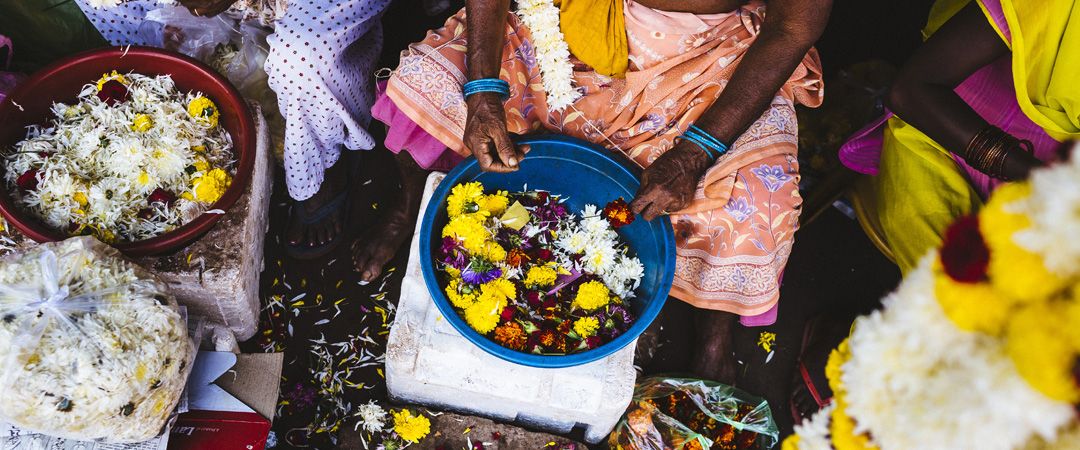
HOPE RESTORED
AFTER TEMPLE DEDICATION
By Dignity Freedom Network
Dignity Freedom Network (DFN) is a group of Australians and New Zealanders caring for oppressed peoples in South Asia. DFN desires to see marginalised communities set free through education, healthcare and empowerment. DFN’s focus on restoring the dignity and freedom of women and children who are the most vulnerable to exploitation and abuse.
Born a Dalit, a girl, and with a physical defect, her very existence brought disgrace to her impoverished family. 18 year old Laxmi* experienced a lifetime of discouragement and pain.
But her pitiful world was disintegrating around her. Having given up all hope that she would marry, her parents decided to dedicate her to a temple goddess so they would not have to provide for her. This would alleviate the disgrace of having a daughter that no-one would marry. She would become the property of the village, to be used by any man, any time. She would endure a life-time of exploitation, abuse and misery.
Saroya*, one of our Village Leaders heard whispers of the illegal dedication. She gathered her team and together they went to the police, urging them to intervene.
Frantically they searched the area for the clandestine dedication. Just as the ceremony began, they burst into the secluded room bringing the dedication ceremony to an end. Saroya held the trembling girl, while police confronted the parents and those orchestrating the dedication.
Laxmi was brought to one of our safe houses where she received health care, counselling, and skills training. She is discovering that she DOES matter. That she IS valuable. That others DO care. Most importantly, she is hearing of a God who loves her and discovering she has inherent worth.
The rescues and restoration Laxmi experienced is possible because of the faithful support of many in New Zealand who partner with us. This ensures we have team on the ground to empower vulnerable women and girls; restoring what has been robbed, and restoring them to embrace a future they could never have dreamed of.
*Names changed to protect privacy and identity
BY ALICE KINYUA
In 2016, Alice and her family moved from Nairobi, Kenya to Whanganui, where they served as pastors for 5 years. Alice is now the Intercultural Ministries Enabler for NZ Church Missionary Society and an adjunct lecturer teaching Christian Leadership and Mission at Bishopdale Theological College in Nelson. She now lives in Nelson with her husband, Vicar at St Stephens Community Church in Tahunanui, and their two daughters.
An innocent chit chat with a bored mum at the playground quickly became interesting when I asked her what a typical week looked like. She chuckled and responded with that familiar litany of the mundane and important to which every mum relates. Being a good conversationalist, she asked me the same question, to which my answer was largely similar to hers. However, I also happened to be preparing to speak in a church about missions and without going to details I mentioned this to her because it was heavily on my mind. Her eyebrows rose and she asked, “are you a church minister?”
I responded “yes, I am”. She told me that in all her life, she had never met a minister let alone spoken to one. She told me she’s never been to a church. She had some Christian friends and she had seen church buildings, but she’d never known anything beyond that. And boy, did she have questions! At the end of our conversation, she said that her highlight was to speak to a Christian minister and to realise that they were normal people. I took that as a compliment… I think.
This is not an isolated story. I have had repeat experiences, and many ministers and lay Christians report the same. What this tells me, is that there is a growing population here in NZ that can arguably be termed as “unreached”. These are people who are not necessarily rejecting Christianity or even opposed to it, they just don’t know it. They haven’t heard the gospel. How do we respond?
Traditionally, NZCMS has sent Mission Partners overseas and we’ve gotten really good at it. However, more and more Kiwi disciples are realising there is mission work to be done here too. Just as some have recognised the need overseas and a call to go, people are sensing a call to stay.
This excites us because it lands right in the middle of our vision to equip the Church of Aotearoa to participate in God’s mission wherever he has placed us.
So we partnered with our friends at Discipleship Pathways to provide a resource that equips you to do just that.
“Staying is the New Going” is a series of training videos that can help you and your mates have that conversation about responding to the call to stay. How do you know if this is you? Well, if you aren’t called to participate in God’s mission overseas, you’re called to participate here! Every disciple is called to participate in God’s mission.
There are three areas of missional need that are rapidly growing in Aotearoa:
- The unreached (as described above) for whom the cry of Romans 10:14 applies—How then can they call on the they have not believed. And how can they believe in the one of whom they have not heard? And how can they hear without someone preaching to them?” Arguably, many Gen Z folk would be in this category.
- The migrant communities that are moving next door. The very people we go to minister to overseas are now coming to NZ in droves. They are now living in a country where there is religious freedom, there is peace and an abundance of resources. Whom shall we send?
- The ever-growing number of spiritually hungry people in NZ. We are in a generation where atheism is losing its marvel as more and more people are embracing various expressions of spirituality. The Wilberforce Foundation survey of the spiritual landscape of NZ revealed that 81% of New Zealanders hold to some form of spiritual belief. The evangelist in me hears it this way; 4 out of 5 people would be open to having some level of a spiritual conversation. There is plenty of room therefore for the spiritual Christian claims, only this time they are claims about the unknown God made known and an unknowable mystery revealed.
The church in NZ has the privileged opportunity to equip disciples to lean into God’s mission, love our neighbours like Jesus did, and to respond to the Holy Spirit’s call to stay.
In the ‘Staying is the new Going’ course, 10 short, compelling, high-quality videos offer another set of tools for your ministry toolbox that will help you do just that. Staying is the new going.
FOOTNOTES:
- “Faith and Belief: Exploring the Spiritual Landscape in Aotearoa New Zealand.” Wilberforce Foundation, November 2023. https://faithandbeliefstudynz.org/wp-content/uploads/2023/11/willberforce-report-2023-digital-2.pdf. pg 14.
BY DR BENNO VAN DEN TOREN
Benno is professor of intercultural theology at the Protestant Theological University, Groningen, the Netherlands. With Kang-San Tan, he recently wrote Humble Confidence: A Model for Interfaith Apologetics (Downers Grove, IL: IVP Academic, 2022). This article is curated with permission from Lausanne Global Analysis, May 2024.
The first letter of Peter calls us to ‘always be ready to make your defence [apologia] to anyone who demands from you an account of the hope that is in you’ (1 Peter 3:15, NRSV). Since the Enlightenment, apologetics in the West have been mainly addressing challenges raised by secular modern thinking: Does God exist? Can God speak to us? Is the Christian faith compatible with science? In other parts of the world, issues with interfaith apologetic witness may be different.[1] In India and elsewhere, religion is often mainly understood as a communal identity, and in these societies there is often a precarious balance between the majority and minority religions. Missions activity can be frowned upon as “proselytisation”, an effort to manipulate others to convert so as to grow our own community and power. The proselytisation charge will need to be counteracted by forms of witness that refrain from all manipulation; by our interest not in growing our communities as such but in presenting our truth. This implies the willingness to be accountable for the trustworthiness of the witness we share.
The first apologists mainly spoke in multi-religious environments similar to the Apostle Paul’s audience in Acts 17 on the Areopagus. Paul’s speech is one example of how the biblical authors themselves showed an apologetic interest. The four gospel writers were not merely repeating what they had received about and from Jesus. They were presenting an accountable witness that intended to bring out the trustworthiness and relevance of this gospel message for their specific audiences. Luke wants to show Theophilus and his fellow readers that the stories they heard about Jesus were trustworthy. The question of the trustworthiness of the witness is equally central to the Gospel of John. Matthew wants to respond to specific challenges raised by his Jewish readers: could this Jesus indeed be the Messiah expected in the Hebrew Scriptures? And Mark presents ‘an apology for the cross’—is it conceivable that this crucified criminal is indeed the true king?[2]
Christian Apologetic Witness to Other Religionists
One might suggest that such interreligious apologetic witness is less appropriate today as it was in the times of the early church. In large cultural sectors religious and cultural relativism has become a dominant trait of how people understand the religious commitment—religion is not about truth, but it is a way we organize our communities, symbolically express shared experiences and values, and give meaning to our lives. This is indeed a crucial contribution of religions to the modern world, but the Christian faith starts elsewhere—not as a human project or construct, but as a response to God, who acted in Christ to save the world and to inaugurate His kingdom. If we want to counteract the widespread belief that religions are mere human constructs, valuable or not, we need to be willing to give an account of why as Christians we believe our faith is a reflection of what the world really is, a recognition of how we came to know God in Jesus Christ, and why this matters to all of us.
Proselytism aside, we should not shy away from sharing the gospel with those who are deeply invested in their religious communitie s as imams, priests, monks, sannyasins, or committed lay believers. And an interreligious apologetic witness would be the best approach. Too many of our missions efforts are directed to those who are at the margins of their religious communities. If we also have a message for those at the heart of other religious communities, we must be conscious that they often embrace their religions because they believe them to be true and good, highly superior to other religious traditions including Christianity. Are we able to explain why we believe the Christian faith to be trustworthy and true or, as a first step, worth considering?
Christians are not the only ones involved in apologetics. Other religionists committed to their traditions are often exposed to and involved in their own apologetic discourse. This would include strong strands of anti-Christian apologetic reasoning: Isn’t believing in the Trinity unreasonable? Isn’t believing in karma more just than the idea that sins can be forgiven? Isn’t it self-evident that the Divine is unknowable and ineffable and that no religion can claim superiority over another? Isn’t Christianity the white man’s religion of the former colonizers? Generally, such convictions remain unspoken in the background, but they will need to be addressed before our dialogue partners can start seriously considering the truth and relevance of Jesus Christ.
Inadequacy of Western Apologetic Models
There is a need for interfaith apologetics, because existing models of apologetics as developed in the Western world are often inadequate in multireligious contexts. A Western defence of Christianity can respond to questions that people may not ask or be interested in. “Does God exist?” is not an issue for other religions, which assume God does (in their understanding). “Is religion compatible with science?” is also largely irrelevant. If the questions have similarities the background to the questions may still differ. The idea that God can be known in history raises very different questions in modernity than it does for Hindus. Other religious contexts not only raise different questions, they also present different ways of reasoning and attributing authority.
Many Western models for apologetic witness are also narrowly rationalistic. They address intellectual issues while neglecting people’s emotional lives, predispositions, and loyalties. Exploring how apologetics can become more sensitive to the realities on the ground, thus more relevant to the people in dialogue, can renew apologetic witness both in the non-Western and the rapidly changing Western world.
Shaping Interfaith Apologetic Dialogue
Firstly, interfaith apologetics should be holistic. It should address people as integrated human beings with not only ideas, but also desires, commitments, loyalties, and emotional concerns. This does not make the intellectual dimension of the exchange unimportant. If the Christian witness only appeals to people’s needs, emotions, and desires, evangelism becomes propaganda or even manipulative. We should take these dimensions with utter seriousness, and help people to critically consider their felt needs, their gut reactions, their loyalties. The aim is to discover what is true, good, and truly beneficial to them in this web of often conflicting influences on their lives.
Secondly, interfaith apologetics should be contextual. We should not look for arguments that are generally valid and convincing (if such arguments even exist) but should seek out the main obstacles and possible bridges in particular persons, communities, and contexts. Apologetics therefore needs to be dialogical. The apologists should be attentive listeners with an authentic interest in people, in their deeper motivations, hidden presuppositions, and personal histories before they speak. They are not to become agile debaters presenting quick answers and are not afraid to acknowledge new wisdom they may encounter and difficult questions that they cannot directly answer. A more inquisitive, sensitive and personally engaging apologetic witness is likely to be more convincing.
Thirdly, interfaith apologetic witness should be embodied. It should be embodied in the lifestyle of the witness that reflects God’s love and deep interest in every human being, but also demonstrates the courage Jesus and his apostles showed in unmasking idolatry and hypocrisy. It should be embodied in the life of a community that is ‘the hermeneutic of the Gospel,’ as expressed by Lesslie Newbigin. [3] Religions do not only represent worldviews, but also ways of living and values. In considering the truth of the Christian message and worldview, our conversation partners will also be examining whether following Jesus represents attractive and robust ways of living; whether its values are worth pursuing. Seeing this embodied in a contextually relevant manner is far more convincing than hearing a mere set of ideas.
Finally, interfaith apologetics should always be triangular. It is not merely a two-way conversation in which we try to persuade others of the value of our own way of life and worldview as we listen to them. It is a three-way conversation in which we point to a reality that is bigger than ourselves and our community, to the God whom we have met in Jesus Christ and personally encountered through the Holy Spirit. We are not selling ourselves or our views but pointing to a gift that we have received. As we point others to Christ, we may discover new understanding of him for others and for ourselves. Through apologetic dialogue we desire to make Christ known, but our lives will also be enriched by the encounter.
Humble Confidence
We are therefore called to engage in such interfaith apologetics with both humility and confidence. We engage in it with humility because we do not share a collection of clever insights or deep spiritual experiences, but we share a gift that we ourselves have also received by grace. Where spiritual depth is concerned, we may well encounter adherents of other religions who have pursued the spiritual path much more diligently and can share more lofty spiritual experiences. The ground of our faith is not in spiritual experiences but in Jesus Christ.
Apologetics is therefore not only dialogue, but always also witness. We can only give an account of the reasons for our hope by pointing to the love and power of the God we have encountered in Jesus’ life, death, and resurrection. We can testify to Jesus with courage and confidence. This confidence is not based on our personal ability to master every criticism or answer every question. Many witnesses have come before us and testify alongside us who have thought through those questions and confirmed the trustworthiness and relevance of the biblical witness to him. We should always return to the basis of our confidence. As the evangelist Stanley Jones said about the interreligious roundtables he organized in India: ‘In every situation the trump card was Jesus Christ. He made the difference. The people who followed Him might be spotty and inadequate, but they had hold of the spotless and adequate or, better, Christ had hold of them!’[4]
FOOTNOTES:
- See article entitled ‘Delivering the Good News to Hindus,’ by Rabbi Jayakaran, Lausanne Global Analysis, July 2014.
- “Robert H. Gundry, Mark: A Commentary on His Apology for the Cross (Grand Rapids, MI: Eerdmans, 2000). Endnotes.
- Lesslie Newbigin, The Gospel in a Pluralist Society (Grand Rapids; Geneva: Eerdmans; WCC Publications, 1989), 222–33.
- E. Stanley Jones, A Song of Ascents: A Spiritual Autobiography (Nashville: Abingdon Press, 1968), 239-40.
BY STEPHEN T
Stephen grew up in East Africa and returned to serve there as a cross cultural worker among the peoples of the Horn of Africa. He lives with his wife in Auckland and they have three grown children, one son-in-law and two grandchildren. Stephen has a business which enables him to interact with many of the ethnic people in his neighbourhood.
Quran 57:27. Then in the footsteps of these ˹prophets˺, We sent Our messengers, and ˹after them˺ We sent Jesus, son of Mary, and granted him the Gospel, and instilled compassion and mercy into the hearts of his followers.
My experience from my growing up years and as a cross-cultural partner is with our cousins (Muslim people). In the Bible, Matthew 28:19-20 gives us some guidelines.
Therefore, go and make disciples of all the nations, baptizing them in the name of the Father and the Son and the Holy Spirit. Teach these new disciples to obey all the commands I have given you. And be sure of this: I am with you always, even to the end of the age. (NLT)
This passage can be divided into several parts. First, there is evangelism and then there is discipling. This paper we will mostly focus on the first part evangelism. I hope to write another paper of the second part discipling.
Jesus first says “Go…” (or, more accurately, “as you go”). I see evangelization inferred here. Evangelising is a proces rather than an event. “Make disciples” is dependent on the going. Then there is “baptizing”, which is typically assumed to be an event in the person’s life when he or she publicly acknowledges an internal change which has occurred in their life. The rest of the verse deals with “teaching to observe” which is an essential part of the discipling process.
Evangelising Is A Process
Evangelizing is a process which involves helping our cousins move from their understanding of God and salvation to a Christian understanding and later acceptance. In this process our lives are as important as our words. Although we are presenting evangelising as a process and conversion as an event sometimes there is a grey area where someone is expressing that they are believers but maybe not born again yet. Sometimes this grey area requires follow-up.
Using the Engel Scale as a guide, our cousins can have some understanding of cultural Christianity but little or no awareness of the gospel or the personal implications in his or her life. There is little recognition of personal need and he or she is not ready to respond to an invitation to receive Jesus. Someone has said a follower of Islam needs to hear the gospel 150 times before believing. I would suggest it is more about he or she needing help understanding the gospel and its implications in their life.
Samuel Zwemer felt that one would not be able to intelligently communicate the Christian idea of God to a cousin without a clear understanding of their idea of God. On the one hand, the strength of Islam is Monotheism. The Trinity is one of the hardest concepts for a former follower of Islam to accept (The Moslem Doctrine of God (1905) 7). Their concept of God often misses the idea of a loving God as we understand God to be loving.
Other attributes that affect their acceptance of the gospel are their concept of His holiness and justice. God is seen as the dispassionate creator of both good and evil. One quotation goes something like this: “These on my right hand are for heaven and I care not, these on my left for hell and I care not.”
On the positive side, Christ is given an important place in Islam. Although much is denied, such as His deity, His death on the cross for sin, and His lordship, much is also present. Zwemer sees a lot in the Muslim understanding of Christ that can be a useful bridge when witnessing. For example, “Islam, … admits His coming, His supernatural birth, His high office as the bringer of a special revelation from God, His sinlessness, His compassion and His power to work miracles. His very names afford so many points of departure to lead from the Koran and Tradition to the Gospels. ” (The Moslem Christ (1912) 181.). The concept of sin and the need for the cross, and how to communicate these, also need to be understood.
Many, when they believe, understand that they are moving from one religion to another, from one community into another. Their families also believe this and see the person as rejecting them and all they stand for. There is little understanding that they are receiving something good and valuable. Christianity is a relationship not a religion and the inquirer needs to understand this (John 17:3). Yet they still expect that there are certain works they have to fulfil in order to be truly saved. Often they are calling themselves believers but have not fully understood salvation. I sensed this with one guy I tried to follow-up after he had professed to believe through the radio.
Evangelism Is A Lifestyle
Evangelism is a lifestyle and needs one to live close to those one is seeking to reach. It involves developing friendship. As the inquirer becomes a believer he or she should move from being a friend to a brother or sister. The dictionary defines a friend as: a person for whom one feels affection and whom one knows intimately. The book of Proverbs gives much advise on friendship building. The level at which we can share and challenge is also dependent on the depth of the relationship. A chart I picked up somewhere (I am not sure of the source) goes something like this:
| Levels of Friendship | Description | Respect |
| 1. Acquaintance | Occasionally meet, discuss general issues | Questions general. Treat the contact as a divine appointment. |
|
(if you proceed too fast from level 1 to the next, you are seen as “nosey”) |
||
| 2. Casual | Common interests or activity | Specific questions. Able to discuss specific issues (discern what God is doing) |
|
(if you proceed too fast from this level to the next, you are seen as “pushy”) |
||
| 3. Closer | Mutual life goals – projects | Sense areas of potential. Make achievements, develop projects together. |
|
(if you proceed too fast from this level to the next, you are seen as “inappropriate”) |
||
| 4. Intimate | Commitment to development of their character (and your own) – mutual correction |
Be openly honest. Discern causes of deficiencies |
Adopt A Culturally Sensitive Lifestyle
To build bridges of relationship try and adopt as much as possible the cultural (and religious) forms without adopting the meanings associated with false belief. This is not new (e.g. Paul 1 Cor.9:19-23) and has been done to varying degrees throughout missionary history.
Why do it? Why adapt our approach? So as to avoid/remove unnecessary stumbling blocks to the gospel (e.g. dress, food, “three gods”) and let the cross be the only stumbling block (1 Cor.1:22-24; 2:2). Also so that the new followers of Jesus won’t be so easily extracted from the community as “foreigners” but will continue to live as much as possible in relationship with their people; so they won’t be seen to have rejected their culture but can live as a witness back amongst their people (Mark 5:18-20; John 4:28-30,39-41).
It can be argued, however, that there may be a need for a time away from the culture for the new believer to reflect and be grounded in his new faith (cf. Paul in Gal. 1:15-17).
Some areas for adaptation consideration are food. Avoid foods which are forbidden in their religion such as pig meats and alcohol. Some believer don’t have forbidden foods in their homes even when their Muslim guests are not present so that the utensils will not be polluted by those foods. [1]
Consider your hands. You should never use your left hand but only your right hand for eating, greeting and giving gifts; the left hand is customarily used for ‘unclean things’.
Also dress. Muslims have certain requirements for modest dress and even though we are free as Christians we may seek to limit our freedom in this regard so as not to cause unnecessarily stumbling blocks to our message and not lose their respect. Adult Muslim men rarely wear short pants (only for certain types of work and maybe sports) and we may lose their respect or be considered boys if we violate this norm. Muslim women to be considered modest are required to cover most of their body except the face and hands. At least they usually cover their head and wear a long loose fitting dress down to the ankles. To keep their respect we should try to dress in a way which does not violate these sensitivities while among them.
Our forms of worship might change. We should consider whether our prayer forms as Christians are more biblically or culturally derived? The Bible gives no prescribed position for prayer. Examples of standing, prostrating, kneeling, lying, “lifting up holy hands” are all recorded. Muslims normally do not understand loud shouting as prayer. We need to remember that God knows our prayer needs before we even pray (Matt.6:5-8).
Think about adornment of our homes. Do we have pictures or scriptures/prayers around our homes? Muslims normally see it as wrong to represent any prophet or holy person in a picture. If you have pictures depicting Jesus or angels on the wall they will probably assume you are “worshipping” them. Muslims tend to decorate their homes and artifacts with scripture quotations from the Qur’an in Arabic rather than pictures. We can likewise decorate with appropriate biblical quotations (e.g. Deut.6:4 or John 17:3) to avoid this misunderstanding and have a more positive witness.
Spiritual Formation
- Love. As a cross cultural worker among our cousins we need to practise what you preach. Firstly we need to really love and care for them. Sure, we will make cultural mistakes, but if we love them often these will be overlooked and/or forgiven. Often there will be opportunity to help them in practical ways and this will help in developing a meaningful relationships. If they are newcomers to your country there will be many of these opportunities (1 John 3:16-18).
- Have a Proper Self Image: We must not have an attitude of superiority. Muslims resent this (“don’t think of ourselves more highly than we ought”, Romans 12:3). Muslims generally are proud people and have a pride in their own history and attainments. However, we also need to not have an attitude of inferiority; we should know who we are in Christ (John 14:12-21; 15:5-17; Acts 19:13-16). Jesus served but was not ‘servile’. He washed the disciples feet yet was respected as their teacher. He served, not because he was inferior, but because He knew who He was and what His mission was for the Father (John 13:1-17; Mark 10:42-45).
- Be a Person of Spiritual Maturity: (1 Pet.1:15-16) “Be holy as I am holy.” We need to be people who know the Word of God. We are among those called “People of the Book” in Qur’an so we must know our “Holy Book”. We should be people of prayer (Col.4:2-4 “Devote yourselves to Prayer”). Muslims generally have the idea that we do not pray. Without being “Pharisaical” (Luke 18:9-14), we must pray to know God as well as for our Muslim friends to know God. Pray for households, parents and children by name. It also helps to fix their names in our memory. We should have high moral standards (1 Peter 2:12). Muslims are raised with the idea that Christians are drunkards, immoral, and profane. We should always try to give witness against this mistaken idea by our lives.
- Have Willingness to Learn: We must begin by listening, as half of good communication is listening. Listen and ask questions as well as contribute your own thoughts. Earn the right to talk by first understanding. Unless you listen you will miss opportunities to tie into points of common knowledge and experience to build upon. We need to learn about Islam, not to put it down, but to enable us to speak our truth to it, ask appropriate questions, and give sensitive answers (Col.4:5-6).
As more of our cousins move into our neighbourhoods let’s be proactive in reaching out to them. Choose a few of your neighbours and make an effort to engage them!
FOOTNOTES:
- A workmate in Africa came up with these and I have adapted them. So too the following Spiritual Formation list of 4 points.
FEBC New Zealand is looking for a new Fundraiser to join our team.
- Support the growth of FEBC through Regular Giving & Bequest programmes.
- Develop strategies and creative solutions in NZ, to impact people globally.
- Love what you do in NZ, and help Kiwis feel great about their mission in the world.
With oversight from the Executive Director this role will continue growth of the organisation and ensure the ability to scale up the current successful projects. The role will expand the fundraising capacity and ensure the efficient and effective running of several operations of the organisation. Part time, beginning with 24 hours a week.
You will truly align with FEBC’s mission and vision. You will enjoy the prospect of bringing your skills, experience and personality to this faith-based for-purpose organisation, and play a key part in growing the donation income across two significant programmes. To find out more, please get in touch with Matt Perry 021 855 468 for a confidential chat. For a copy of the Job Description, please email matthew@febc.nz Only applicants with citizenship or residence, and the right to work in New Zealand, will be considered.
For more information, visit the vacancy page on our website here, or here for general information about FEBC.
BY MARTIN & ESTHER BOOGARD
Martin & Esther are based in Poznan, Poland where they founded the Emmy Foundation to foster health, healing, and wellness through counselling, coaching, therapy and custom-made ‘retreats’ for Christian development workers, missionaries and pastors. This article is curated (with some minor edits) from the OSCAR (One Stop Centre for [Christian worker] Advice and Resources) blog, 31 January 2024.
As a development worker or missionary, you NEED your free time, but alas, going back to your passport nation is not always the answer. Before you know it, you are hard at work again and, again, you don’t have time to focus on your goals for the near future, haven’t had time to work on any issues you’ve been facing in the past year, let alone obtained your much-needed rest. So, there is a decent chance of burning out and giving up—and that is NOT what we want to happen to you. People like you are are valuable to people like us who provide retreat spaces for missionaries and others in ministry.
The Problem
Sadly, approximately 5.1% of missionaries leave the field each year. This is a problem because the loss of missionaries means that the potential for deep and meaningful ministry to people is lost, which often requires long-term commitment. It can also mean completely losing a Christian representation in an area where Christianity is rare or even completely absent. In addition, of the 5.1% of missionaries who leave the field each year, about 71% leave for potentially avoidable reasons. A survey of 40,000 missionaries and 600 mission agencies found that 43 percent of missionaries fail to save their long-term commitment to their field.
They come home and stop.
That percentage equates to 17,200 missionaries who have left the field. That’s 17,200 difficult emails to supporters. 17,200 people looking for a new job. And 17,200 missionary opportunities are vacant.
Some Reasons
Some of the main reasons (among others) are issues like culture shock, burnout, unfulfilled expectations, conflict, lack of finances, and lack of “calling”. Unfortunately, we cannot solve every problem, but we would like to work on one of the reasons why missionaries leave the field: Burnout.
Why burnout?
Social
You can’t be a development worker or a missionary without being involved with people, and that can be a source of burnout. The “problem people” need much more of your attention than the “pleasant people”. As a result, you begin to see even good people as problem people. You are supposed to be polite, tactful, and caring, which can get to the stage where you feel that you cannot express the disappointment and frustration growing within. You laugh and make an evasive comment instead of expressing your feelings. Instead of getting a “thank you” from someone you helped, you get suspicions. There are locals that you really like, but you hesitate to get too close to them because you know you will soon return to your sending country. It is easier not to establish a close relationship than to create one and then break it off in a few months and you might find yourself lacking the social support they could otherwise supply.
Systemic
Your work environment can be a source of burnout. The language school that was so frustrating. When you arrived on the field, it seemed even more overwhelming than you expected. So many people to meet, so much to do, and so little time to do it. You went to do “God’s work” but there was such a need that there was no time for breaks or vacations. Your colleagues had projects that they were trying to fund, and you knew they were asking for money from the same people you hoped to tap. Your director was supposed to be an encouragement but you seemed to get more criticism. Even compliments seemed to end with a “but…”. There were plans, policies, and procedures to observe. There was so much red tape before you could start a ministry or project, only to be followed by progress reports taking you away from the ministry and then more meetings and more reports and more emails and more Zooms and more… sigh.
Self
You may be a source of burnout yourself. If you lack confidence or have low self-esteem, you are likely a candidate for burnout. If you are unassertive, submissive, passive, or fearful and blame yourself for failure, you are a candidate. If your need for achievement, approval, and affection is too high, you’re a candidate. If you are impatient and irritable and don’t know how to handle anger and conflict, you are a candidate for burnout. If you’re a perfectionist, an idealist, a… you get the picture.
Can burnout be treated?
Yes! If it is caught on time. People in ministry who are so burned out that they actually leave the field are unlikely to return. Such people can recover from their burnout, but usually move on to a different kind of work, potentially that which is not ‘front line’ missionary work. That is why it is important to detect a burnout as soon as possible and to take measures to prevent it from getting worse. If burnout is already on the rise, you probably know you’re burning out, but you may not notice it in the early stages. The best early warning system is not you, but others who are willing to point out symptoms of burnout in you to you. Of course, you are their best early detection system too, so check each other out regularly and keep in touch!
Can burnout be prevented?
Yes! You can do many things to prevent burnout. Below are some suggestions:
- Set realistic goals. Set specific goals so you know when you’ve reached them. You may want to save the world, but you’re not going to do it alone and you can only play your part.
- Don’t get into a rut. Vary the way you do things, so they don’t become too routine.
- Take breaks. This includes different types of breaks: (1) Coffee breaks – morning and afternoon. (2) Lunch – do not work during that time; leave the ministry space. (3) One day a week – you know, the Sabbath; leave town if you have to. (4) Vacations – take them. Maybe you recognize yourself in these excuses: you don’t have the opportunity this year, it’s not convenient, it’s too expensive, with excuses found year after year after year.
- Don’t take things personally. You are not responsible for everything that goes wrong.
- Leave your work at work. When you come home to your family, enjoy it.
- Learn to laugh at yourself. You are not indispensable, and sometimes things go wrong in a funny way.
- Raise up a support group, perhaps on the home front. You need people to encourage you and act as a mirror so you can look at yourself realistically.
- Live a life of your own. Have a hobby or activity that you just enjoy doing for the sake of it on a regular basis.
- Change jobs. If all else fails, request another assignment in your mission.
- Take vacations (in case you didn’t hear it the first time). But alas… many missionaries do not go on vacation. It just doesn’t happen this year and the year after that, you keep going year after year… This happens too often. There are a number of reasons for this. But before we get into that, we’d like to point out a huge problem…what do missionaries do when they do make time to go home or take leave?
What do you do on leave?
When missionaries return to their sending country they often continue to work, just in a different location. For example:
Education
Sometimes it is helpful for missionaries to go “home” for a while to continue studying. Problems have arisen on the field and it would do their ministry good to take some time out for some further studies and reflection. This is one of the same reasons pastors and university teachers take sabbaticals. But is is not rest, it is a different kind of work.
Connection with family and friends
One of the most difficult aspects of missionary work is the separation from your old social environment. Besides the language and cultural differences, this is the most important factor that distinguishes missionaries from pastors and other full-time Christian workers who live in their own countries. It can be emotionally taxing to reconnect (or fail to reconnect).
Report to the sending office and (financial) supporters
Missionaries are often accountable to their home congregation and those who sent them out, less to their missionary organizations (even though they are also important). It is essential to have face-to-face time with those churches and people who occasionally support you to renew and maintain those relationships. In addition to renewing relationships, missionary visits to churches and other missionaries are great opportunities to encourage those back home with stories of what God is doing in the mission field! Nothing beats hearing the person concerned directly. Again, this is an extension of a missionary’s work.
Recruitment
The term currently popular is “mobilization”, but we prefer “recruitment”. The term “mobilization” is broader than recruitment, as it includes encouraging people to pray for, give to, and recruit for missions, as well as reaching out to international students and other immigrants in the local area. Home-visiting missionaries are usually the sending organisation’s best advertisement and point of contact with new enquirers. This is not restful by any stretch of the imagination.
Financial support
Missionaries often make home visits, at least in part, because they need more money. Missionaries need more support for many different reasons. Sometimes the economy is bad and donations are declining. Sometimes faithful elderly supporters go to be with the Lord. Sometimes the needs of missionaries increase when there is a change in ministry or when children are added to the family or their needs become more expensive. And sometimes churches decide that long-term missionaries aren’t cost-effective or strategic, and they drop you completely. For all of these reasons and more, a missionary’s financial support level can become too low and they have to pick it up again. If support is very low, the missionaries may be coming home much earlier than expected. Fundraising is to missions like sales is to business. It is part of the business, not a break from it.
Rest and renewal / leave
And finally, rest and renewal. When all of the above are over and done, only then is time taken for some rest—assuming there’s time left over. But, very often, there is none.
The word “leave” suggests the idea of rest—leaving work. Taking time to rest and recover is a very valid reason for a leave. Besides the initial culture shock of staying abroad, there is a certain level of culture stress that just never goes away. Living day in day out in a culture with different values, beliefs and language than one’s own language can cause a certain amount of stress. You always have people around you who just don’t fully identify or understand you. People are always looking at you and happy to advise you on what to do and what not to do in terms of clothing, housekeeping and family planning. So it can be very helpful for missionaries and development workers to completely remove themselves from their host culture from time to time.
Why don’t we take time needed for rest and renewal?
There are a number of reasons:
The demands on the “leave” home are HUGE. In the (often) three (or less) months that missionaries return “home”, they are inundated with the (more or less obligatory) tasks noted above. Missionaries feel responsible for fulfilling all the obligations to enable them to continue in ministry.
Their sending church does not see holidays as necessary or necessary. Spending time in a nice and warm country is a holiday, isn’t it? No, it’s not. We pay you to work for the Lord, it’s more of a hobby than a ‘real job’ isn’t it? No, it’s not. And sometimes the sending church stops their support when you take leave., because “we’re only paying you to do the ministry”. Yes, that happens.
The missionary him/herself uses the same (false) reasons that the sending church uses… It’s a privilege, it’s already a kind of vacation, God might come back today, so let’s keep working, the need is HUGE so I can’t stop, and on it goes…
Leave costs money, and you need all the money you can find for the ministry, not on some kind of frivolous pampering.
If you want to go the distance in missions (or help the missionaries you support to do so) you need to seriously re-think bad priorities. Nobody wins if you burn out and become an attrition statistic. Take control of the situation. If you need a break, prioritise the need and take it. Often it can be helpful to attend an extended guided retreat to help you find a pathway back to full potential. If you feel like you need time off to fully rejuvenate make sure to investigate spiritual or refreshement retreat opportunities in your nation and invest in your longevity in ministry.
References
- Why Missionaries Leave the Field Prematurely, Savanna Schneider, 2018 The Center for Missionary Mobilization and Retention.
- Taylor, William D. Too Valuable to Lose: Exploring the Causes and Cures of Missionary attrition. Pasadena: William Carey Library, 1997.
- Frontier Ventures. “Global Statistics.” Joshua Project, https://joshuaproject.net/people_groups/statistics
- What Missionaries Ought to Know About Burnout https://missionarycare.com/
- US Report of Findings on Missionary Retention, December 2003
- Why do Missionaries go on Furlough? https://www.dahlfred.com/.

PRAYERLINKS
PRAYER FUEL FOR MISSIONS
Praise God for fifteen new national missionaries recently deployed into 5 of 52 Unreached People Groups in a sensitive part of Africa. Pray for God’s blessing on their work and for many to respond to the Gospel. Please pray and fast with us on June 11th, the day when at least one imprisoned brother in another sensitive country is going on trial for his faith. Pray that he will have a settled heart and that families will be reunited, and fear removed from the church. Pray that the winding up of AIM NZ’s Board will go smoothly for all involved, and that the new Asia-Pacific Director will soon receive his Australian visa so that he can join the staff in the office instead of trying to work remotely from the UK.
Ethnic Languages of Southeast Asia (ELSEA) is a new ‘field’ within FEBC International. It produces programmes in 19 ethnic minority languages for Southeast Asia. Pray for Nopp and his new team around the region as they create, produce, and inspire thousands of listeners to draw close to God.
We are now in the penultimate (second to final) month with Jay and Pauline on staff with Missions Interlink (MINZ). On Thursday 30 May, around 25 members met to explore the future of MINZ to help determine the kind of functions and leadership required to guide the community into the next season. Pray wisdom for the Executive Team and Council as they consider the findings from that meeting. The Director and Administrator vacancies have been advertised (in the BULLETIN and with NZ Christian Network) with a few expressions of interest received. Pray wisdom for the Exec and Council as they select God’s people to help strengthen our collaborative community. Opportunities to do so close on 14 June. Pray too for an effective handover of roles prior to Jay and Pauline leaving on 31 July.
With a number of events happening (see Spotlight), pray for wisdom in preparation, coordination, and good working together. We long to see the younger generations getting involved, so pray particularly that we will know how to let them know of these events. We praise God for a new staff member filling one of the gaps—pray as they settle in to the team and their role.
Pray for the Team from Eastwest College and WEC that are following up the many contacts made through the recent The Send events. Pray that the team will be able to point these contacts to the right organisations and make the right connections with those that have indicated an interest in working among the nations. Pray too for their involvement as part of The Send tours which start in June.
A MISSIONS INTERLINK MASTERCLASS
Friday 12 July, 2024 | St Margaret’s Anglican Church
Costs: Free Zoom: Yes Registration: Required before 5 July 2024.

Dr Gina Zurlo
World Christianity Specialist
Gina is a world renown Christian demographer and historian who holds a PhD in History and Hermeneutics from Boston University School of Theology (2017). She is an interdisciplinary scholar, crossing between history, sociology, and World Christianity with particular interest in women’s experiences of Christianity and church life worldwide.
She is the Co-Director of the Center for the Study of Global Christianity at Gordon-Conwell Theological Seminary (South Hamilton, Massachusetts) and Visiting Research Fellow at Boston University’s Institute on Culture, Religion and World Affairs.
Gina was named one of the BBC’s 100 most influential and inspiring women of 2019 for her work in studying religious statistics, and, in particular, the future of religion worldwide.
Gina will share findings from her research into the growth of Christianity around the world. These findings are sure to surprise and encourage you!

SPOTLIGHT ANNOUNCEMENTS
LATEST NOTICES & EVENTS
AIM NZ ANNOUNCEMENT
AIM has been mobilising missionaries from NZ for almost 100 years, and we pray that God will again raise a new generation of Kiwi workers in the coming years. However, numbers of Kiwis in the field have dwindled markedly and it’s proved extremely difficult to find suitable staff and volunteer Board Members for AIM NZ. Currently, the AIM NZ Board is in the process of winding up the charity in NZ and AIM Asia-Pacific’s Australian office is assuming responsibility for NZ missionaries and enquirers. Bruce & Christine Turner, as Mission Mentors, will continue to support and promote the work of AIM in New Zealand. The need to mobilise and support more workers for Africa’s least-reached peoples is ongoing!
OMF EVENTS
Newcomers are welcome to OMF’s Mid Year Prayer online and hubs around the country on 22 June, Japan Prayer Network on 24 June, and Meet the Missionary on 26 June. Bridge Mission focusing on Creation Care, and Thailand Prayer Network are in early July.
See the OMF events page for details of each one: https://omf.org/nz/get-involved/events/.
NATIONAL TEAM LEADER VACANCY
Do you have a heart for issues of injustice and serving the poorest of the poor? Have initiative and leadership skills? Dignity Freedom Network (DFN) is seeking a National Team Leader to raise awareness, prayer and finances to support a transformational, nationally led and run holistic organisation in South Asia. For more information email: info@dfn.org.nz.
REBUILDING: WHAT IS GOD DOING IN TÜRKIYE TODAY
NZ TURKEY NETWORK NATIONAL CONFERENCE
Come and hear stories of God at work in remarkable ways, keep up to date with what’s happening on the ground, hear the heart of local leaders and learn something new! Various workshops available. Plus, join a special interactive workshop space as well as a virtual 7 Churches tour and prayer journey.
Dates:
Friday 26—Saturday 27 July, 2024
Venue:
City Church
346 Manchester Street
CHRISTCHURCH
MORE INFO & TO REGISTER:
https://events.humanitix.com/national-conference-2024
NGĀ HUNGA HOHOURONGO
Uncover the profound journey of Māori responses to the introduction of te rongopai (the gospel) into Māori society. Witness the fascinating clash of traditions as the Gospel and Christian scripture intersected with the sacred law of tapu, utu (rebalancing) and warfare. This course offers a captivating overview of ‘peace-oriented Christianity’ and its transformative impact on Māori.
Dates:
12-14 Aug. & 2-4 Sept.
9:30am-4:30pm
Venue:
Laidlaw College Henderson Campus
3 Smythe Road, Henderson
AUCKLAND
MORE INFO & TO REGISTER:
https://www.laidlaw.ac.nz/ngā-hunga-hohourongo/
BIBLE MONTH COMING
With Bible Month (July) just around the corner at Bible Society New Zealand, we are excited to invite you to start exploring this year’s theme with us – The Bible Is Truth! Unlock your free resources online and uncover the power of Truth found within God’s Word today. Click on the link to visit: biblemonth.nz.
EARTHQUAKE RELIEF: BUILDING TRIP TO ANTAKYA.
NZ TURKEY NETWORK
Do you have practical skills, a love for God and a willingness to go and serve? Come and help build tiny homes for families who lost their homes, friends and relatives in the devastating Feb 2023 earthquakes.
15 October – 5 November 2024 (Approx. only)
For more information, and to download an application form visit:
https://www.nztn.org/about/nztn#events
GLOBAL MEMBER CARE NETWORK 2024 CONFERENCE
The Global Member Care Network is working on their vision to bring the Global Member Care world together again for their 4th Global Member Care Conference, this time in Africa. The significance of this location is to serve African mission movements, while learning from their unique strength in missions and member care. Past experiences have shown that surprising connections and transformative insights happen individually, organizationally, and nationally when member care practitioners gather from various national missions movements all over the world.
Location: Nairobi, Kenya
Dates: 28 Oct – 1 Nov 2024
For more information visit: https://globalmembercare.com/conference-2024/
MISSIONS INTERLINK VACANCIES
Founded in 1972 as the Evangelical Missionary Alliance (NZ), Missions Interlink (NZ) is the association of missions passionate organisations and individuals supporting and/or serving in missions and outreach ministries from and within Aotearoa New Zealand.
With over 70 member organisations plus individual members, Missions Interlink is the largest representative body of outreach and training ministries in the nation. While our members support the work of Missions Interlink operations, our members are Missions Interlink, with our central operations providing services free of charge to anyone serving in or supporting local or global missions regardless of membership status.
Jay Mātenga and Pauline Wood are the latest in an honour roll of quality leaders who have served the Missions Interlink community. David and Lydia Hall, Gordon and Helen Stanley, David Jenkins with Terry Trail, and Ray Windsor (in descending order) have guided the fellowship in the past alongside other faithful volunteers. It is time once again for a changing of the guard.
Jay (Executive Officer) and Pauline (Administrator) will vacate their roles from 31 July 2024, so Missions Interlink has need of new personnel to serve the purposes of the association and undertake the functions required to meet those purposes. The location of these roles are flexible. Missions Interlink has no dedicated office. Personnel work remotely, usually from home.
ADMINISTRATOR
The most urgent need is for an Administrator. This is a living wage paid role for 8 hours per week. A list of expected tasks is available. Click here to download.
Reporting to the Executive Officer, the Administrator must be proficient in book-keeping (e.g. XERO, budget creation, income/expense management, subscription management, donation management, GST payments, working with independent financial reviewers), general computing (e.g. MS Word, Excel, Acrobat, basic graphic design), communications (clearing mail, writing letters, minute taking, email, bulk email services, phone, Zoom), event/project management (promoting and hosting meetings, conferences, forums; planning campaigns and other projects), and report creation (annual reports, Charities Services reporting).
Preferred start date: 1 July 2023 (at the latest).
EXECUTIVE OFFICER
The Executive Officer (aka Director) carries the weight of leadership for Missions Interlink operations, fulfilling the purposes of Missions Interlink and the will of the Missions Interlink Council. Every Executive Officer has brought their own competencies and passions into the role, shaping it for the benefit of all. A meeting of Missions Interlink members is being held on 30 May 2024 to explore the future direction of Missions Interlink. Findings from this meeting will guide the Missions Interlink Council in its assessment of the strategic direction for Mission Interlink and the type of leadership skills desired to guide the community in that direction.
Essential functions typical of the Executive Director role are to represent the members in various forums (regional missions groups, NZ Christian Network, Inter Church Bureau, NZ Government, IRD, Charities Services, member benefit providers), promote missions from their experience and expertise (national conferences, local churches, other gatherings), develop and maintain member resources (e.g. legal opinions, missionary care advice, templates and guidelines), create resources of benefit to members and missions in general (leaders forums, spiritual retreats, special interest clusters, Annual General Meeting), work on strategy and goals with and report to the Missions Interlink Council (3x per year).
This is a self-supporting role requiring executive leadership experience in missions. It would be an ideal role for a returning missions leader retaining donation support. Weekly hours are negotiable. There is no start date determined for this role yet.
EXPRESSIONS OF INTEREST
For the past three seasons of Missions Interlink leadership these roles have been fulfilled by a husband/wife combo. That need not be the case always, but it is a convenient option. If there is interest from a duo, you need to know that the Executive Officer responsibilities will take longer to shape, with the Administrator required ASAP.
Missions Interlink is seeking expressions of interest for both roles. You must have a right to live & work in Aotearoa New Zealand already. Formal application processes for at least the Administrator position will be available in June. Please express your interest with an attached CV to Missions Interlink Council Chairperson, Joseph Bateson by email: joseph.bateson@wec-int.org. The opportunity to express interest in either role closes on June 14, 2024.
ABOUT US
Executive Officer Jay Mātenga
Administrator Pauline Wood
Executive Team
Joseph Bateson (Chair), Glenn Carter (Vice Chair), Jon Horne (Treasurer), Andrew Marriott (Secretary), Rebecca De Jong.
MI Council
Arotahi (formerly NZBMS), Asian Outreach, Beacon Partnerships (formerly LeaDev-Langham), Church Mobilization Trust, Eastwest College, European Christian Mission, GC3, International Teams, Interserve, Laidlaw College, MotiVate, NZCMS, OMF, Pioneers, SIM, WEC, World Vision, with individual member: Jon Horne.
Our Purpose
We facilitate collaboration towards participation in mission from and within Aotearoa New Zealand. We nurture the missions community in Aotearoa New Zealand to connect, converse, and conduct mission with the aim of working together: on mission.
Connecting the missions community
from and within Aotearoa NZ
for God’s glory everywhere, always.
MI SERVICES include (but are not limited to):
MI BULLETIN MI Online Member Directory
MI ManaakiApp (for retail discounts & coupons)
MI Research and Resources
MI Conferences, Clusters & Collaborations:
Admin, Mission Leaders, Church Mission, Diaspora,
Member Care, Mission Training, Mobilisation, & more.
HOW TO CONTACT US
PO Box 64 379
Botany 2163
Auckland, New Zealand
+64 9 320 4408
CLICK HERE to drop us a note.
ADVERTISING
The MI BULLETIN is distributed by email every month to around 1000 missions interested people.
Commercial Rates & Sponsorship
Only charity rates are listed here. Commercial ad rates and sponsor benefits are set by negotiation.
Spotlight Notices
Text only (up to 50 words with one web link).
MI members — FREE
Non members — $40 per spotlight
BULLETIN Full Colour Ad Space
Artwork must be supplied (.jpg or .pdf, 300dpi)
Deadline: Last Friday of the month before issue.
COST: MI MEMBERS
First Month
A4 Portrait—$150
A5 Landscape—$110
Successive Months
A4 Portrait—$100
A5 Landscape—$80
Non-members, double the member rate.






